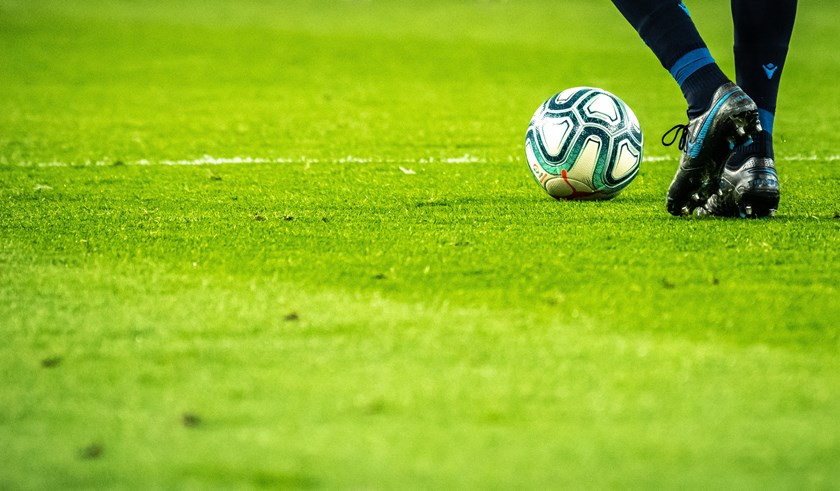Inn the Field of Play - January 2016: IAAF - Returning medals and innocent athletes
News

As the Sunday Times has reported following analysis of the leaked anti-doping IAAF test data, 146 medals (55 of which were gold) were won in athletics endurance events during the period from 2001 to 2012 by athletes who had recorded suspicious test results. This begs the question whether some of those 146 medals should now be clawed back and redistributed. It also raises important issues in relation to the impact of dopers on innocent athletes, who might otherwise have won or been placed in their relevant events.
It is worth emphasising that, whilst the relevant test data in the cases highlighted was were deemed suspicious, this does not mean that anti-doping violations could necessarily be proven to have occurred in each and every case. For example, in each case brought, the relevant information would need to be analysed and assessed by expert witnesses and would also need to be admissible if a relevant tribunal was going to consider it. Further, as set out in Article 3 of the WADA Code, the relevant anti-doping organisation would then have the burden of establishing that an anti-doping allegation violation had occurred, with the relevant standard of proof being whether the organisation has:
“established an anti-doping rule violation to the comfortable satisfaction of the hearing panel, bearing in mind the seriousness of the allegation which is made.”
As the Code goes on to state, the above burden of proof is greater than the standard civil burden of proof (i.e. the balance of probabilities test) but less than the criminal burden of proof (i.e. the beyond reasonable doubt test).
Assuming that there are cases which can subsequently be proven to the comfortable satisfaction of the relevant disciplinary panel, this is likely to result in the claw back and redistribution of medals. However, it is worth bearing in mind, given the 2001 to 2012 period referred to above, that Article 17 of the Code states that no anti-doping proceedings may be commenced against an athlete unless they have been notified of the relevant violation (or notification has been reasonably attempted) within ten years from the date the violation is alleged to have taken place. In some cases, it is therefore likely that violations will already fall outside of the applicable limitation period.
Where doping athletes have won events, this can clearly have a huge impact on innocent athletes who missed out, going well beyond the actual physical medals won. For example, some events will carry with them significant prize money and the prestige from winning some events (and in particular Olympic and World gold's) would in most cases result in lucrative sponsorship and other commercial deals for the athlete.
In the case of prize money, there will potentially be the means for event organisers to seek to recover prize money from doping athletes, provided contract terms contain appropriate provisions allowing claw back and provided the athlete then has the means to repay the monies due. For example, BBC Sport reported in August 2015 that the London Marathon was pursuing Russian athlete Liliya Shobukhova, who was banned for two years for doping violations in April 2014, for prize and appearance money in relation to the 2010 and 2011 marathons. If it is successful, presumably any prize money recovered will then be redistributed to the next placed runners. However, even then the London Marathon has been forced to wait a significant length of time while Ms Shobukhova’s appeals against the doping violations were heard and it remains to be seen whether the London Marathon will be successful in recovering any monies from her.
The position in relation to the recovery of more indirect forms of income, such as lost sponsorship money which may have resulted from, for example, winning a gold medal at major championships, is likely to be even more difficult. I am not, for example, aware of any innocent athletes pursuing legal actions against doping athletes for the commercial income they would have otherwise received, had the doping athlete been disqualified or not competed and the innocent athlete instead won the relevant event. It is also difficult to immediately see the basis for such an action, given there is no direct relationship between the two athletes. For example, if an athlete was considering pursuing a civil fraud against a doper, you might expect them to look into whether the tort of deceit gave them a cause of action. However, deceit is a tort arising out of a false statement of fact made by one person, knowingly or recklessly, with the intention that it should be acted upon by another person, who then goes on to suffer damage as a result. For the current purposes, it is difficult to see how this fits into the scenario of the innocent athlete versus the doper we are concerned with here.
It therefore unfortunately seems that innocent athletes, the fans and the sport as a whole will continue to be the biggest losers from what regrettably still appears to be a significant doping problem within athletics.
If you require further information on anything covered in this briefing please contact David Hunt ([email protected]; 020 3375 7214) or your usual contact at the firm on 020 3375 7000.
This publication is a general summary of the law. It should not replace legal advice tailored to your specific circumstances.
© Farrer & Co LLP, January 2016







